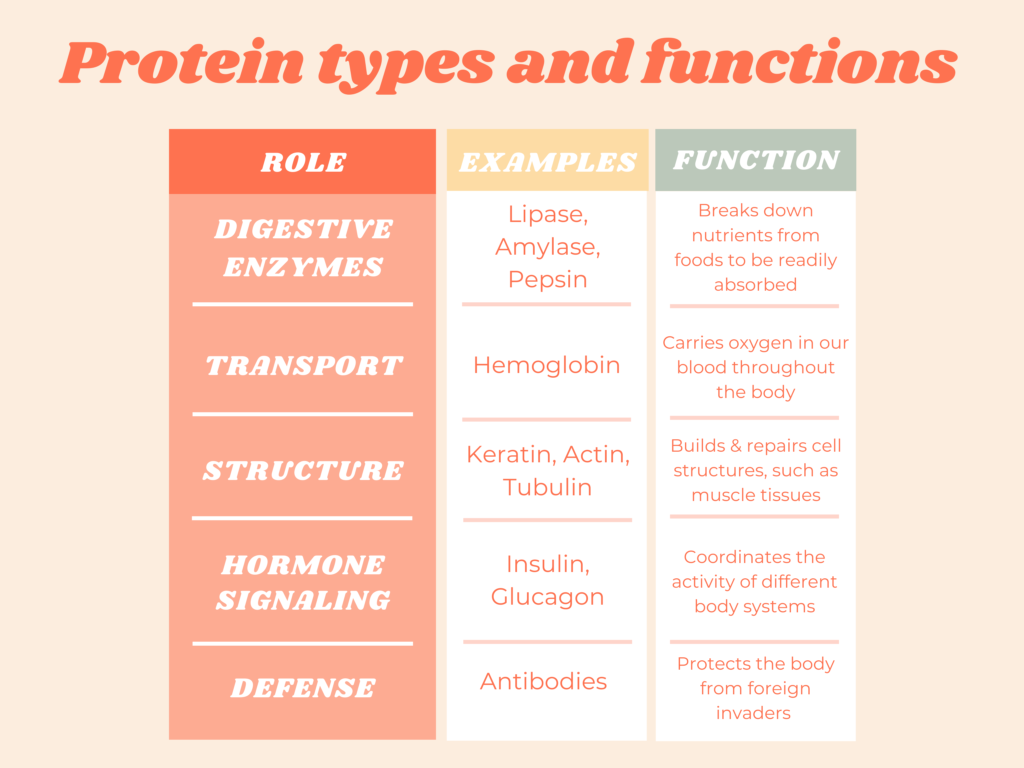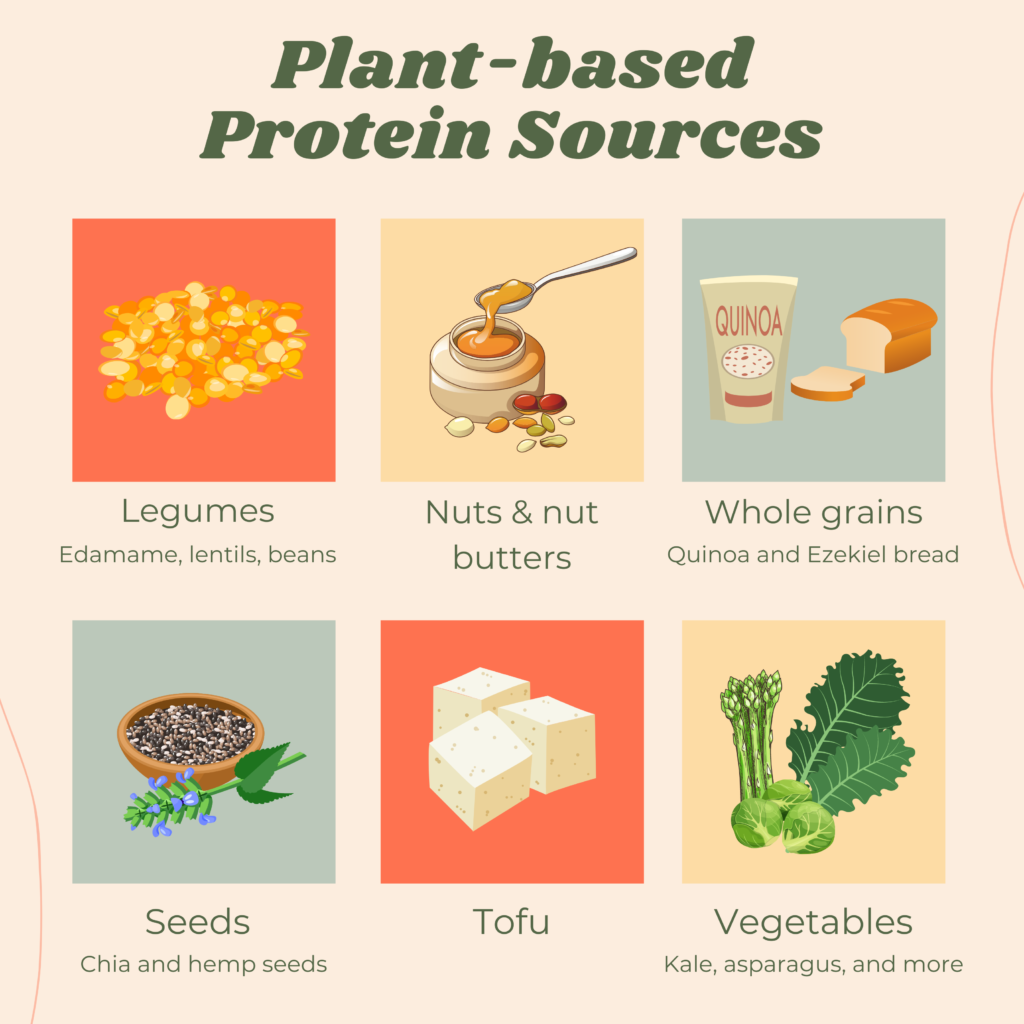By Jillian Sampaio, RD, LDN / Last Updated On: February 12, 2024
Reviewed By: Gabrielle McGrath, MS, RD, LDN
Whether you’re a vegan, vegetarian, or simply trying to incorporate more plant-based foods into your diet, you’ve come to the right place.
We all know that protein is one of the most important macronutrients our body needs. However, when choosing plant proteins, it can be difficult to distinguish high quality protein dense sources.
Basics of protein and why we need it
First, let’s understand the basics of protein.
Protein is made up of amino acids. Amino acids play several important roles in our body including the development and growth of tissues, bones, and muscles.
On a cellular level, amino acids are responsible for acting as digestive enzymes, transporting genetic material, structural support of cells, hormone signaling, and antibody defense. They are even important for biochemical processes such as the synthesis of neurotransmitters and hormones.

Now, let’s understand the difference in the protein composition between animal and plant proteins.
There are a total of 9 essential amino acids: phenylalanine, valine, threonine, tryptophan, isoleucine, methionine, histidine, lysine, and leucine. These are amino acids that our body cannot produce on its own and must be acquired through our consumption of food.
Animal protein sources are considered a complete source of protein because they contain all 9 essential amino acids.
On the other hand, most plant protein sources are considered incomplete sources of protein because they lack one or two of the essential amino acids. However, if plant sources are paired together correctly, they can form to be a complete protein!
In fact, there’s actually a few plant-based foods that are complete sources of proteins, which I’ll share with you!
Best Plant-Based Protein Sources
Looking for high quality, nutrient, and protein-dense plant sources? Here are the best plant protein sources broken down for you and great options to start including in your meals:
Legumes
Pair legumes with whole grains, like rice, quinoa, or amaranth to make it a complete source of protein.
Edamame (complete protein): 1 cup contains 18g protein
Lentils (incomplete protein): 1 cup contains 18g protein
Beans (incomplete protein – garbanzo, red kidney, black beans): 1 cup contains about 15g protein
Tofu
Tofu is a complete source of protein with 11g of protein per 4 oz servings.
Nuts & Nut butters
Pair nuts and nut butters with whole grains to make it a complete protein.
We all love some nut butter on toast with banana slices, am I right?!?
Almonds, pistachios, peanuts, and cashews (incomplete protein): ¼ cup contains close to 12g protein
Nut butters (incomplete protein): 2 tbsp contains about 8g protein
Seeds
My absolute favorite go-to’s for getting protein in!
Chia seeds (complete protein): 2 tbsp contains 5g of protein (complete protein)
Hemp seeds (complete protein): 3 tbsp contains about 10g of protein
Whole grains
Whole grains are nutrient-dense powerhouse sources!
Quinoa (complete protein): contains 8g of protein per cup – another one of my favorite high protein plant-based food staples I always have in my pantry
Amaranth (complete protein): contains 9g of protein per cup – delicious in soups or as a side dish
Ezekiel bread (complete protein – made of 6 sprouted whole grains and legumes): 1 slice of bread contains 4g of protein
Hummus
Pair hummus with some pita bread for a great snack and to make a complete protein!
2 tbsp of hummus provides about 7g of protein (incomplete protein).
Vegetables
Broccoli, spinach, kale, asparagus, artichokes, potatoes, sweet potatoes, brussels sprouts, and the list goes on!
Although these vegetables are incomplete sources of protein, they are jam packed with nutrients and contain 4 to 5g of protein per serving!

Main Takeaway
At the end of the day, both animal and plant sources have its benefits. However, one of the reasons incorporating more plant-based foods into daily intake is gaining so much popularity is because they can enrich your overall health. They can provide your body with more essential nutrients such as phytonutrients, antioxidants, and fiber, which animal protein sources may lack.
While there is a concern of meeting adequate protein needs from a plant-based diet, there are several high protein plant-based sources available!
If you’re a vegan or vegetarian, just be mindful to incorporate complementary or complete plant protein sources into your daily food consumption.
It is important to consume high-quality protein sources and to be sure to include a variety of food groups in your diet to fulfil protein needs.
Now go ahead and wrap yourself up a delicious plant-based meal with these plant-based protein sources!



5 Responses
Appreciate this post. Will try
it out.
I have discovered nice messages right here. I love the method you compose.
Nice!
Its my very first time Im coming here. And also I have currently falling in love with writing you created.
terrific and fantastic blog. I really want to thanks,
for providing us far better info.
Having read this I thought it was really informative.
I appreciate you spending some time and effort to put this
informative article together.
I once again find myself spending a
significant amount of time both reading and commenting.
But so what, it was still worth it!